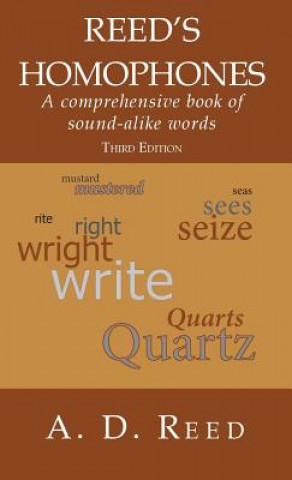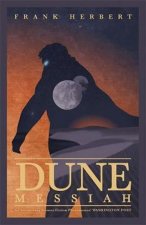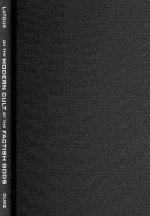
Kód: 14263877
Reed's Homophones
Autor A. D. Reed
"Reed's Homophones: A comprehensive book of sound-alike words" was born from the conjunction of two semi-related factors. Its mother was a series of mistakes in word use that seem to perennially crop up in local newspapers; its fa ... celý popis
- Jazyk:
 Angličtina
Angličtina - Vazba: Pevná
- Počet stran: 122
Nakladatelství: Pisgah Press LLC, 2016
- Více informací o knize

Mohlo by se vám také líbit
Informovat o naskladnění knihy
Zadejte do formuláře e-mailovou adresu a jakmile knihu naskladníme, zašleme vám o tom zprávu. Pohlídáme vše za vás.
Více informací o knize Reed's Homophones
 Anotace knihy
Anotace knihy
"Reed's Homophones: A comprehensive book of sound-alike words" was born from the conjunction of two semi-related factors. Its mother was a series of mistakes in word use that seem to perennially crop up in local newspapers; its father was the author's useful but irritating editorial habit of correcting errors wherever and however they arise. That parentage engendered a short list of common homophones that seem to attract newspaper reporters as honey does flies: houses "raised" by fires; actors showing real "flare" on stage; people waiting with "baited" breath. Et cetera. When the original list had grown to several hundred word pairs, what would become this book began to take form. What are homophones? Homophones (also called homonyms, though they're not quite the same) are words that sound alike but have different meanings and, usually, spellings. Some are near misses, like "desperate" and "disparate": the first begins with a rhyme for "desk", the second with "disk." But most Americans don't use the Queen's English - we simply don't enunciate as clearly as we should - and regional accents can cause words to sound similar even when they shouldn't, so quite a few of these not-quite-homophones are included. Other words - such as "disillusion" and "dissolution" - aren't close enough in pronunciation to be considered homophones, but do make it into the list of "Easily misused, confused, and mistyped words." Still other sections comprise words that are frequently mispronounced and those that are frequently misspelled, neologisms good and bad, and cheat sheets describing how - and how not to - deconstruct Latin and Greek words and prefixes. Reed's Homophones is aimed at writers and editors-not just professionals, but business owners and marketing executives and website owners and bloggers and anyone who wants to write well enough that the words they use don't come back to haunt or embarrass them. It's also for students and dedicated fans of the English language: in high school and college, adults working on advanced degrees, and anyone learning or teaching English as a Second Language (or even hoping to improve their Scrabble® game). It's not a complete list, nor will it ever be. Our language continues to evolve, and authors - including the author of Reed's Homophones - continue to commit oversights and solecisms. But it is as handy a homophone reference as anyone can find.
 Parametry knihy
Parametry knihy
- Plný název: Reed's Homophones
- Podnázev: A comprehensive book of sound-alike words
- Autor: A. D. Reed
- Jazyk:
 Angličtina
Angličtina - Vazba: Pevná
- Počet stran: 122
- EAN: 9781942016199
- ISBN: 1942016190
- ID: 14263877
- Nakladatelství: Pisgah Press LLC
- Hmotnost: 291 g
- Rozměry: 216 × 140 × 10 mm
- Datum vydání: 15. June 2016
Oblíbené z jiného soudku
-

Dune
216 Kč -

Haunting Adeline
621 Kč -

Berserk Deluxe Volume 2
1092 Kč -

White Nights
89 Kč -

Powerless
268 Kč -

Atomic Habits
330 Kč -

Dune Messiah
228 Kč -

Berserk Deluxe Volume 3
1142 Kč -

One Day
221 Kč -

Berserk Deluxe Volume 1
1115 Kč -

Iron Flame
368 Kč -

Surrounded by Idiots
213 Kč -

Harry Potter and the Prisoner of Azkaban (Minalima Edition)
993 Kč -

Gravity Falls Journal 3
443 Kč -

Heaven Official's Blessing: Tian Guan Ci Fu (Novel) Vol. 1
420 Kč -

The Creative Act
568 Kč -

Dune
276 Kč -

Hunting Adeline
624 Kč -

A Little Life
290 Kč -

Children of Dune
230 Kč -

Heaven Official's Blessing: Tian Guan Ci Fu (Novel) Vol. 2
427 Kč -

Bungo Stray Dogs, Vol. 8 (light novel)
383 Kč -

Percy Jackson and the Olympians 5 Book Paperback Boxed Set
944 Kč -

Solo Leveling, Vol. 1
440 Kč -

The Prisoner's Throne
247 Kč -

Court of Thorns and Roses
268 Kč -

Cry Baby Coloring Book
276 Kč -

Fourth Wing
407 Kč -

Icebreaker
199 Kč -

Berserk Deluxe Volume 6
1089 Kč -

Avatar, the Last Airbender: The Kyoshi Novels (Box Set)
986 Kč -

The 48 Laws of Power
601 Kč -

House of Leaves
611 Kč -

Twisted Lies
213 Kč -

Dune Messiah
272 Kč -

No Longer Human
359 Kč -

48 Laws Of Power
331 Kč -

Twisted Games
213 Kč -

Caraval Paperback Boxed Set
902 Kč -

Solo Leveling, Vol. 2
468 Kč -

Open Circuits
907 Kč -

Berserk Deluxe Volume 5
1119 Kč -

Heaven Official's Blessing: Tian Guan Ci Fu (Novel) Vol. 3
436 Kč -

Berserk Deluxe Volume 4
1125 Kč -

Court of Mist and Fury
206 Kč -

SOLO LEVELING V08
436 Kč -

English File Upper Intermediate Multipack A (4th)
531 Kč -

CHAINSAW MAN V14
254 Kč -

Before the Coffee Gets Cold
184 Kč
Osobní odběr Praha, Brno a 12903 dalších
Copyright ©2008-24 nejlevnejsi-knihy.cz Všechna práva vyhrazenaSoukromíCookies





 Vrácení do měsíce
Vrácení do měsíce 571 999 099 (8-15.30h)
571 999 099 (8-15.30h)